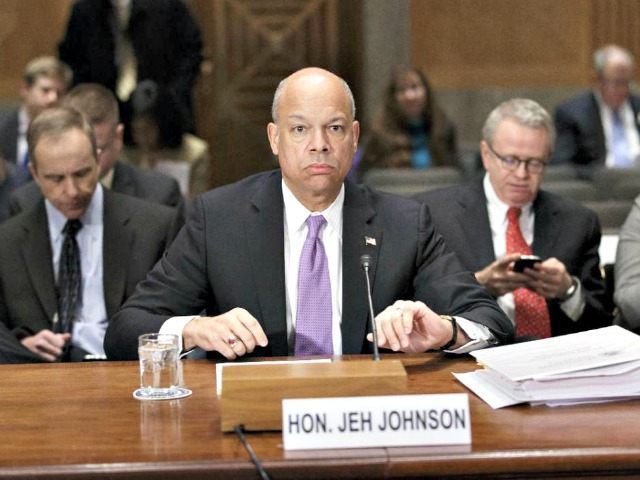Although social media postings are public, Department of Homeland Security Jeh Johnson refused to end a “secret” policy prohibiting immigration officials from reviewing the online posts of all foreign nationals seeking a U.S. visa in early 2014 due to concerns about “bad public relations” for the administration, according to an ABC News report.
“During that time period immigration officials were not allowed to use or review social media as part of the screening process,” John Cohen, a former acting under-secretary at DHS for intelligence and analysis who left in June 2014, told ABC News.
A current and a former senior counter-terrorism official confirmed Cohen’s account to ABC News. And while DHS spokeswoman Marsha Catron told the media outlet that in the fall of 2014 the department began three pilot programs to include social media posts as part of the clearance process, officials told ABC such a polity is not broad.
According to Cohen, immigration officials advocated for a change in the social media policy, however the idea was rejected due to concerns “that it would be viewed negatively if it was disclosed publicly and there were concerns that it would be embarrassing.”
“Immigration, security, law enforcement officials recognized at the time that it was important to more extensively review public social media postings because they offered potential insights into whether somebody was an extremist or potentially connected to a terrorist organization or a supporter of the movement,” Cohen told ABC News.
The concerns about social media posts have surfaced following reports that one of the San Bernardino terrorists, Tashfeen Malik — who was allowed into the U.S. via a fiancé visa — had social media postings revealing her commitment to violent jihad.
According to ABC News, officials noted that Malik’s use of a different name online might still have kept jihadist intentions under wraps even if immigration officials had been allowed to view them when she applied for her visa. Malik received her visa in May of 2014.
DHS’ Catron told ABC News that the department is still “actively considering” ways to use social media in its vetting process while still protecting privacy.
“The Department will continue to ensure that any use of social media in its vetting program is consistent with current law and appropriately takes into account civil rights and civil liberties and privacy protections,” she told ABC News.

COMMENTS
Please let us know if you're having issues with commenting.